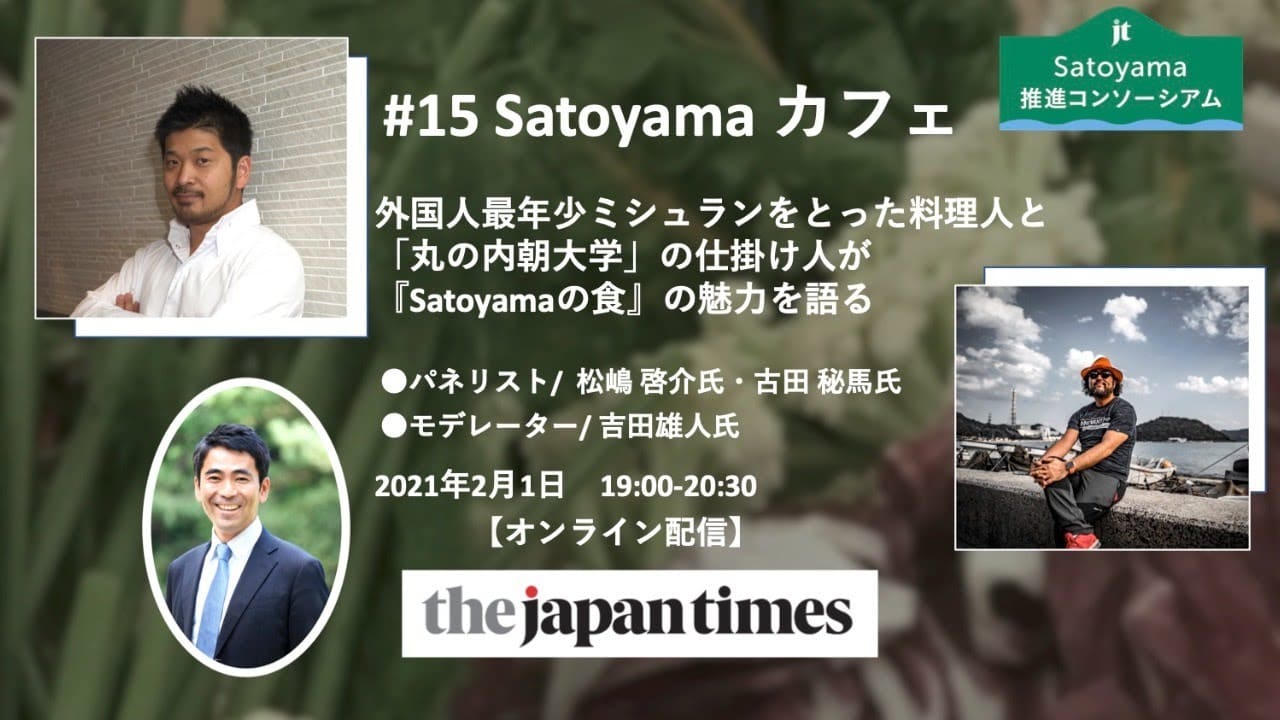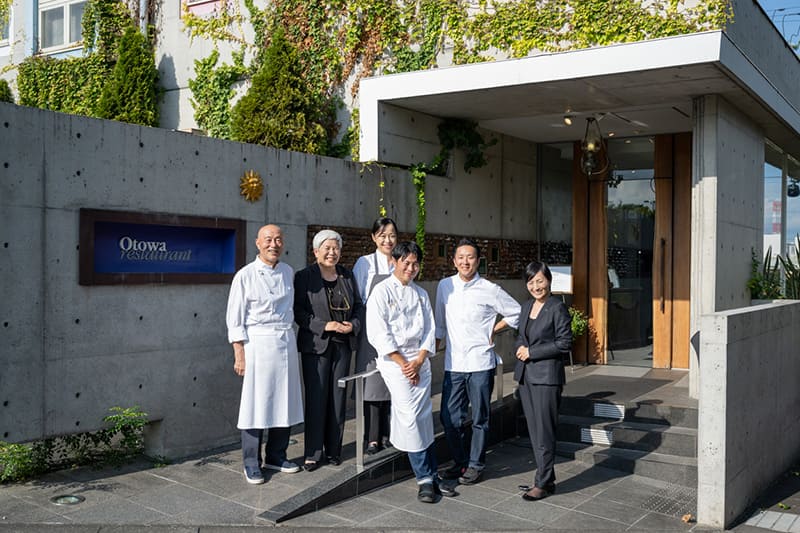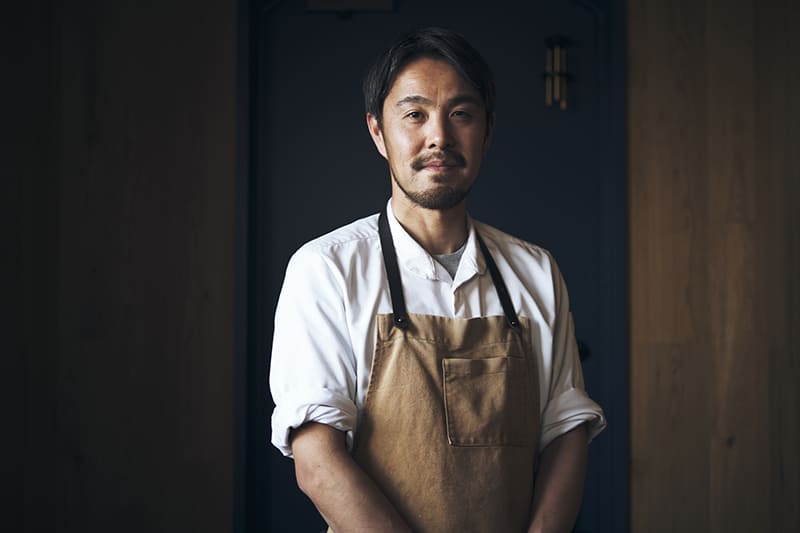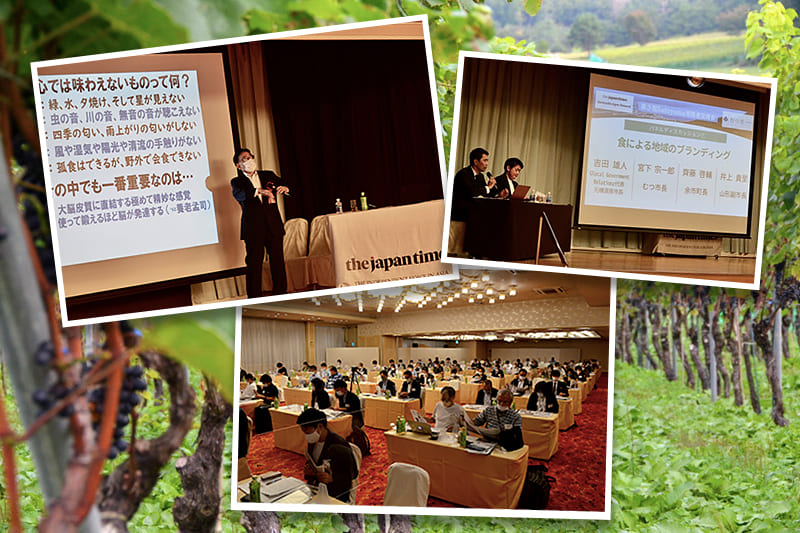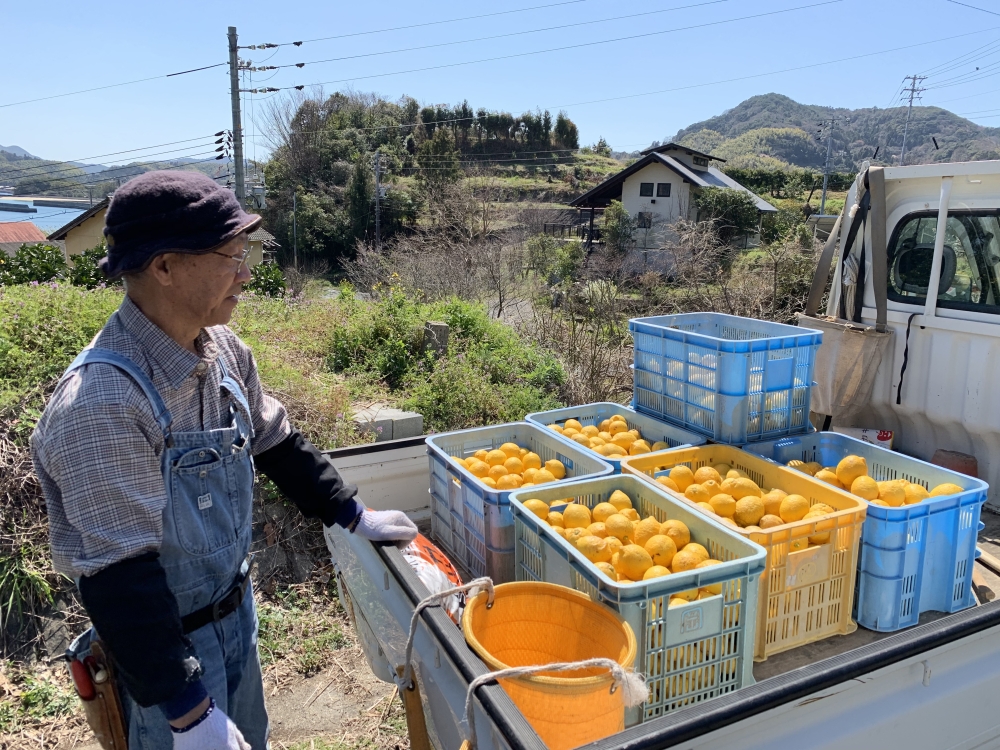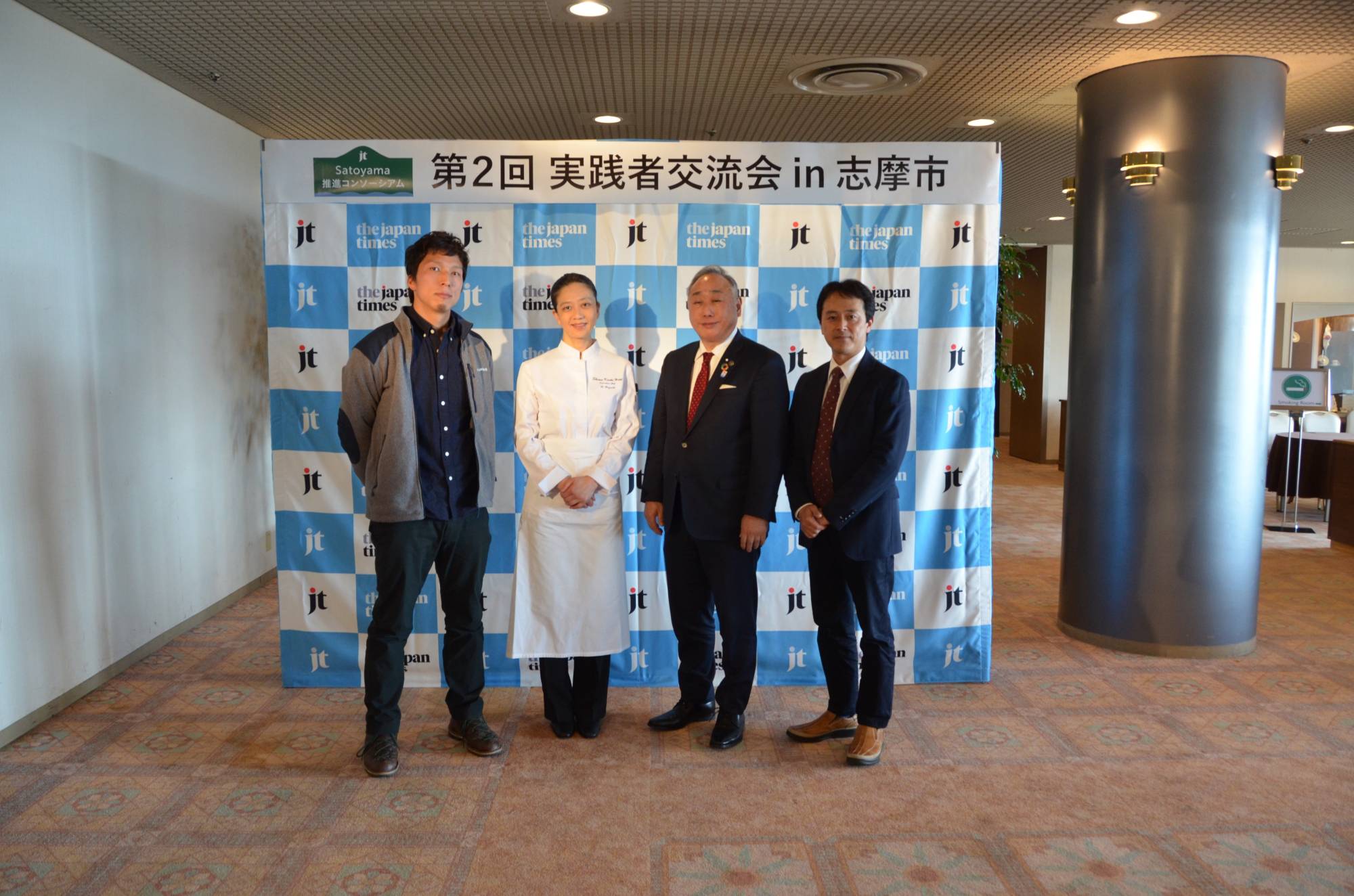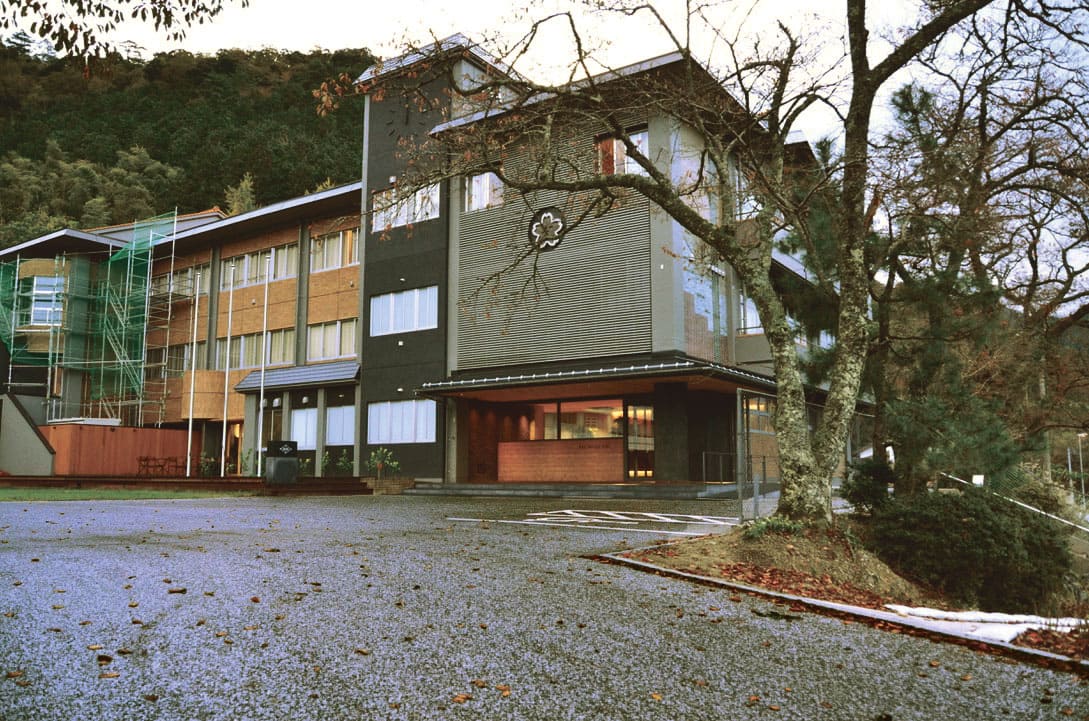May 07, 2021
Think globally while eating locally, then spread the word
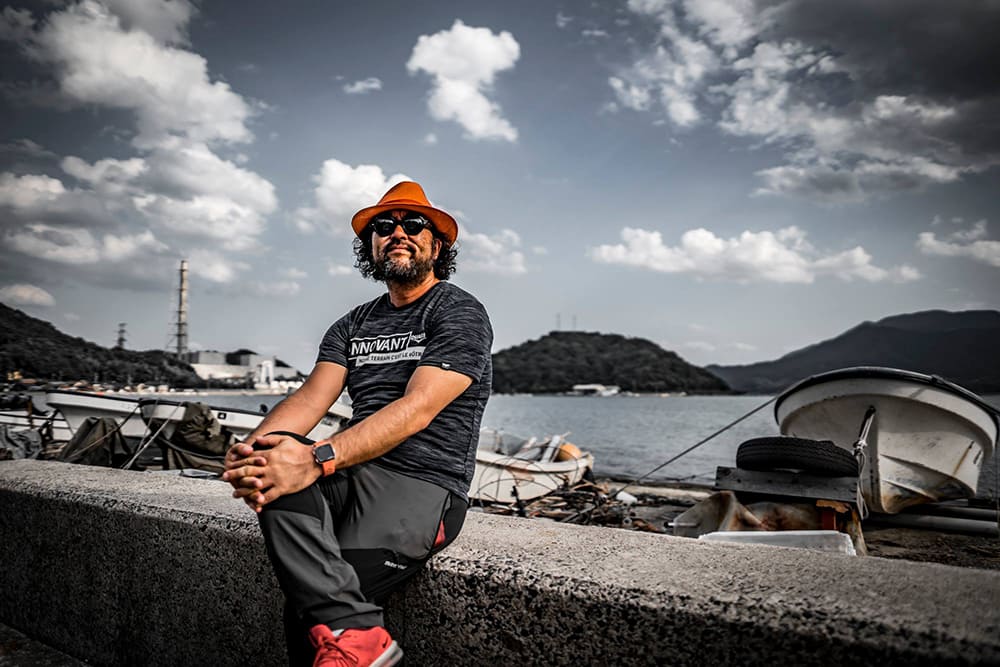
Food can be an effective tool for regional promotion. Every region has its own unique food — a delicacy that can only be enjoyed in a particular area and season, or a way of cooking that has an interesting historical background.
Two key people whose activities have led to re-evaluation of such traditional local foods and spreading the word about them were invited to the 15th Satoyama Cafe on Feb. 1 to talk about some of their ongoing efforts and how important it is to have an objective, outsider’s view in order to find treasures in a region. Satoyama Cafe is a series of talk events organized by the Japan Times Satoyama Consortium. “Satoyama” refers to rural areas where the balance of nature and civilization is maintained through the sustainable use of existing resources.
The project designer, the chef
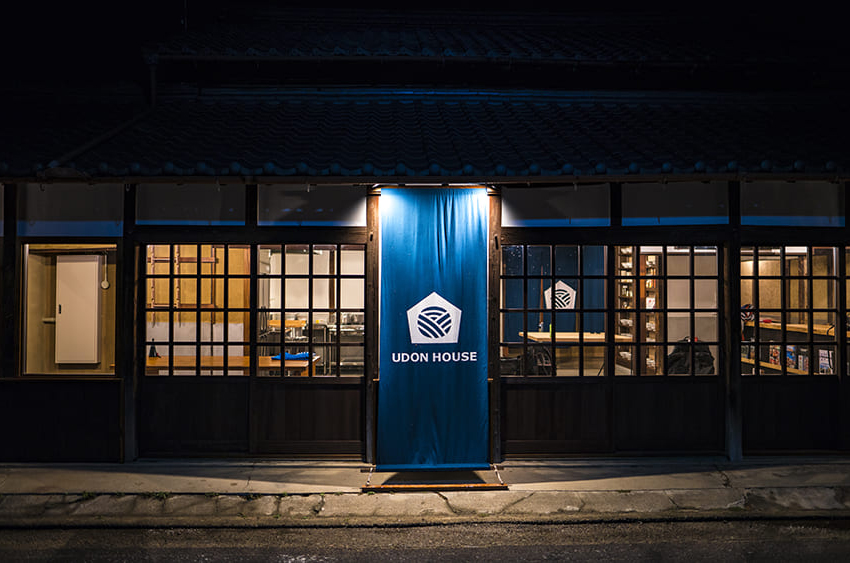
One of the speakers was Hima Furuta, a project designer and the founder of Umari Inc., a company based in Tokyo’s Minato Ward. One of his major projects is the Morning University of Marunouchi, a citizens’ college that has attracted more than 20,000 students since its launch in 2009. Much of his other work involves food and regions, such as operating restaurant buses and launching restaurants and hotels that feature local characteristics.
The other speaker was Keisuke Matsushima, a chef and business manager who has run restaurants both in France and Japan. Matsushima, 43 years old, left for France when he was 20 to learn French cooking. Instead of coming back to Japan to open a restaurant after a period of training, the usual path for most Japanese chefs who apprentice abroad, he stayed in France and launched his first restaurant there. He aimed to be accepted by French customers and win a Michelin star — which he achieved at the age of 28, making him the youngest foreign chef to win a star.
“When I was 20, I was traveling around the world, joining interesting events like the Paris-Dakar Rally,” Furuta said. Although the outbreak of the COVID-19 pandemic has affected human mobility, Furuta stressed that people can be anywhere and still be connected to the world thanks to modern technologies. “Whatever the situation is, there are people who are doing something interesting even at this very moment. There is no reason why you cannot be one of them,” said Furuta, encouraging today’s youth.
The two energetic talents have been collaborating with each other to organize the Harajuku Food Summit since five years ago. This year, the annual event was held online in January. It offered opportunities for experts from diverse food-related fields and from various locations to exchange and combine their knowledge and ideas.
Preserving preserved food
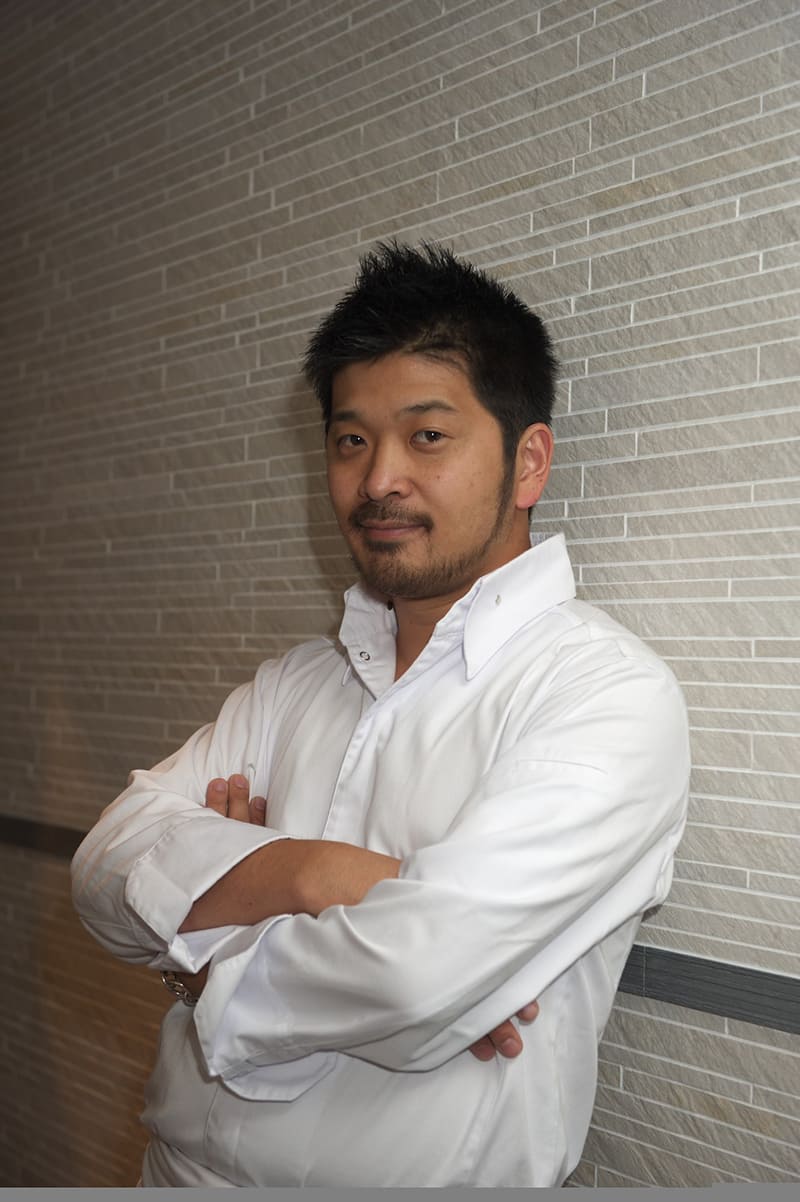
Preserved food is one of the major themes that the summit has focused on over the years. Matsushima said preserved food is at the center of any region’s culinary culture. “You make preserved food because you love where you live and you want to continue living there,” he explained.
Udon, wheat noodles that originally were a dish local to Kagawa Prefecture, can be dried and preserved. Using udon as the main concept, Furuta launched the lodge Udon House in 2018. It offers not only accommodation but also experience in making udon plus many other programs for getting to know the Kagawa city of Mitoyo.
At first, the locals were skeptical and said there was nothing special about udon. “But in only half a year since its launch, Udon House received visitors from 25 different countries. It was also featured in articles and programs for many international media, including The Japan Times, the Guardian, Lonely Planet and CNN,” Furuta said.
“We were able to find the real value in what is ordinary for the locals because we were outsiders,” Furuta added.
Matsushima, who was chosen as a member of the committee to promote the traditional cooking of Nice for inclusion on the UNESCO Intangible Cultural Heritage list, agreed and said that people tend to overlook the true value of what is always right in front of their eyes. “Same is true about your hometown. You don’t know what your hometown is like while you are still there. Japan became my homeland when I left Japan,” said Matsushima, stressing the importance of looking at a region from the outside to identify and utilize its existing resources effectively.

